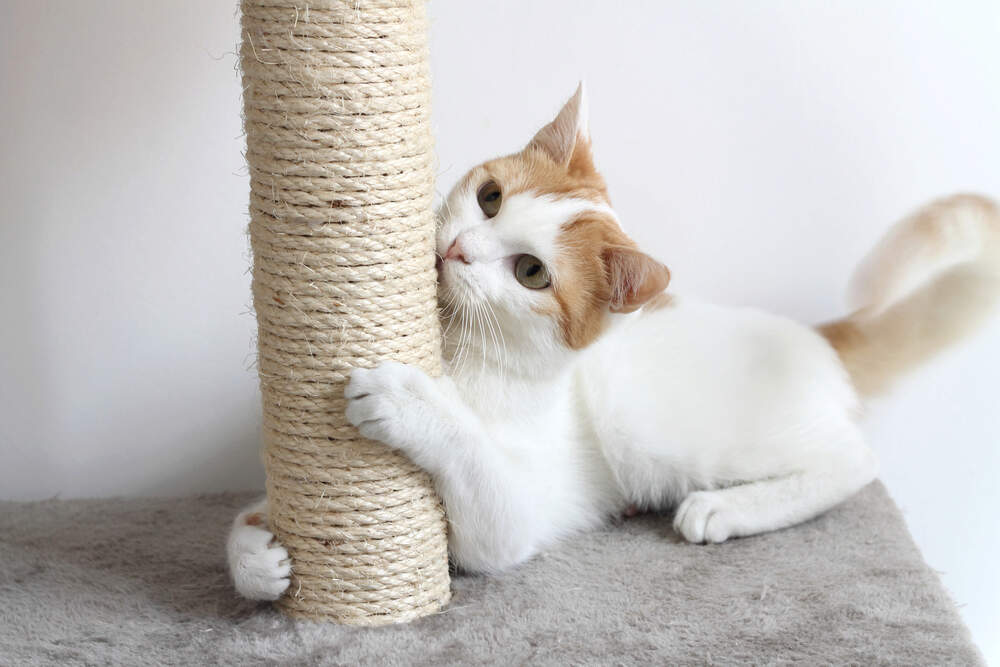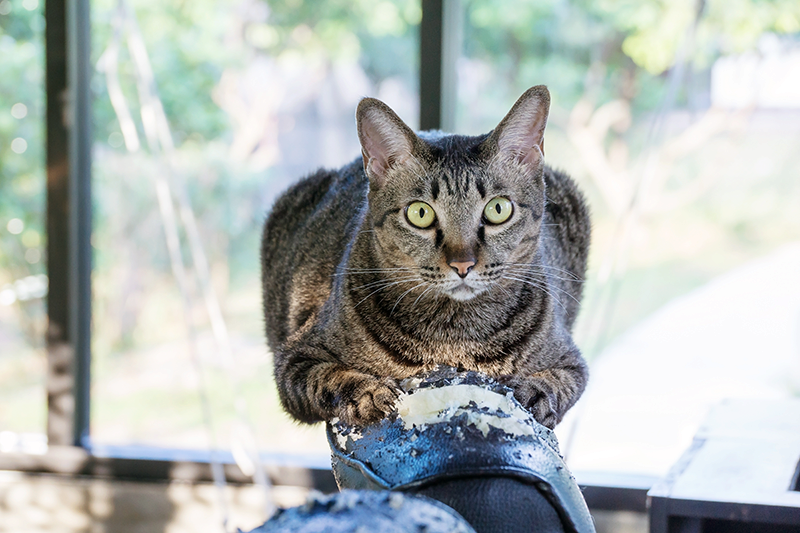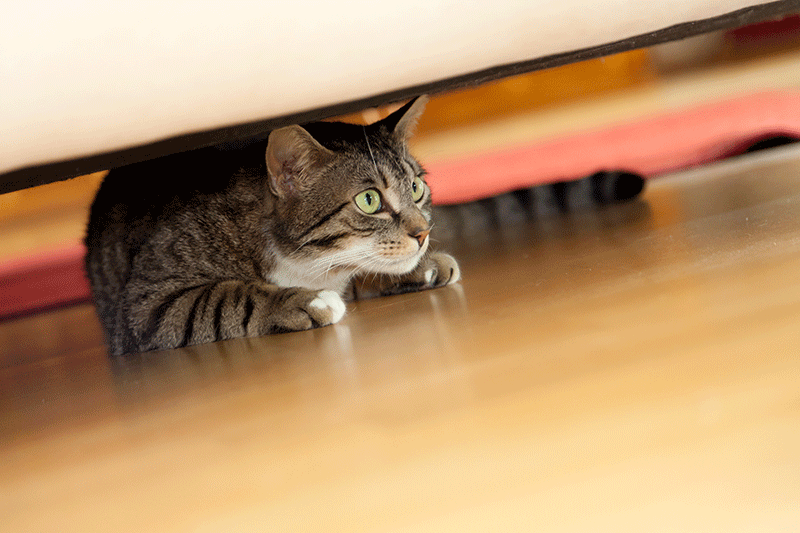Why Is My Cat Scratching?
Every cat owner has wondered at some point, "Why is my cat scratching?" The reality is that cats need to scratch. It's not only instinctual, but it's also important for their physical and mental health. However, if a cat is stressed, the scratching might become destructive. Your goal should never be to stop the scratching but simply redirect the scratching in a healthy way if necessary.
But what are the positive reasons a cat scratches in the first place?
For the Health of Their Claws
Cats have retractable claws, which means there is a sheath within their paws that the claws retract into. Cats need to regularly shed these sheaths so new claws can grow, which is one of the reasons that scratching is necessary.1
To Claim Their Turf
Cats have an urge to scratch because of the scent glands located in their paw pads. When they scratch an object, they are essentially identifying it as their personal property.
For Exercise and Stretching
Scratching provides necessary exercise for a cat's paws, and it also gives them a much-needed full-body stretch. They can arch their back and extend their legs fully—a movement that really feels good to a cat.2
So not all cat scratching is destructive, but there are a few things you can do to redirect the impulse positively.
Scratching Posts
One of the best ways to keep your cat from scratching everything in sight is to provide him with a scratching post. Place the post near your cat's bed if possible, because cats love a good stretch when they first wake up. A scratching post can provide both a stretch and some scratching for your kitty. Most cats will make multiple visits every day to their scratching posts.
Put up several scratching posts around the house, including near the furniture and other areas where your cat likes to scratch. Try vertical and horizontal scratching posts, as well as different types (cardboard, carpet, etc.). Sprinkle some catnip on the posts to entice your kitty.
Scratching Deterrents
If your cat is still scratching destructively, try Comfort Zone Spray & Scratch Control Spray to spray specific areas where your cat is scratching. You can also use the Comfort Zone Calming Diffuser to help your kitty feel like everything is secure. These products emit soothing pheromones that mimic a cat's natural, calming pheromones to help reduce stress-caused scratching.
If all else fails, try covering an often-scratched furniture piece with a thin sheet of plastic or some double-sided tape in the spots your cat most frequently scratches. Cats dislike the feel of these materials and may stop scratching there rather than touch the plastic or tape. You might also need to trim your cat's claws a little or try safe cat claw caps.
Since stress can trigger destructive scratching of the carpet or other areas, try decreasing anything that might make your cat uneasy. This could mean closing the shades so she doesn't see a stray cat outside or moving her litter box to a quieter location. Play with your cat more frequently to build her confidence and help her get rid of some of her pent-up energy. You can also try adding some kitty condos, cat trees, and window perches. Some cats feel more confident when they have high places they can call their own.
Remember, cats scratch for their health, so don't discourage scratching. Instead, set up lots of acceptable and enticing places to scratch and help your fur baby decrease any stress that may make her uneasy.
1. The Humane Society of the United States. "Cats: Destructive Scratching." HumaneSociety.org, https://www.humanesociety.org/resources/cats-destructive-scratching.
2. Restine, Lisa and Buzhardt, Lynn. "Scratching Behavior in Cats: Various Approaches." VCA Hospitals, https://vcahospitals.com/know-your-pet/scratching-behavior-in-cats.




